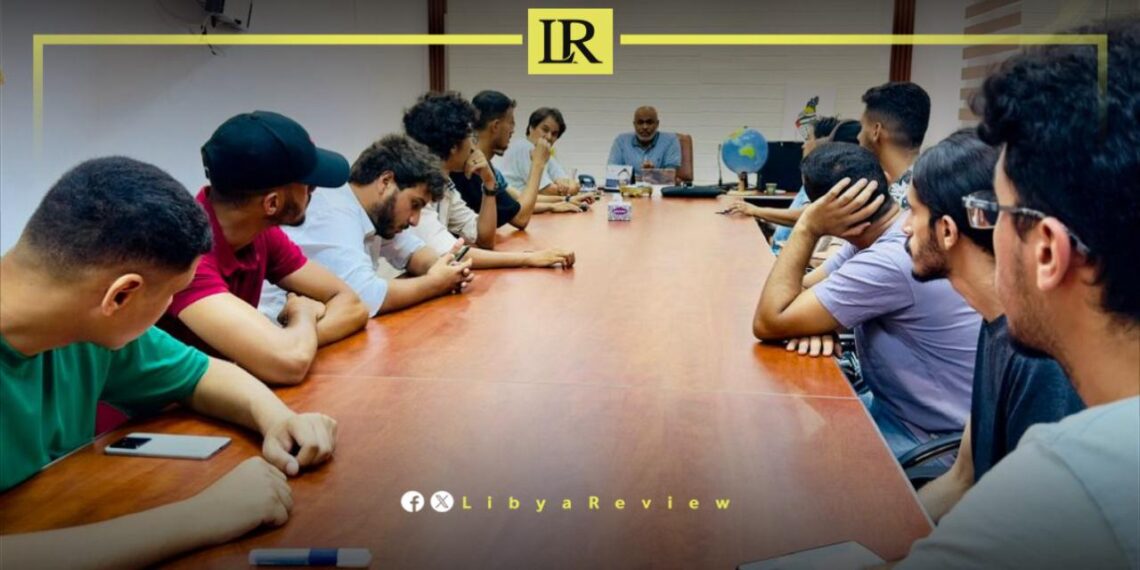The Libyan city of Benghazi is gearing up for the Student Robotics Championship, set to take place next Monday and Tuesday.
In preparation for the event, Rafie Al-Tawerghi, Director of the Office of School Activity in the Ministry of Education for the Parliament-designated government, held an extensive meeting to discuss the details.
The competition aims to promote hands-on learning and provides students with an opportunity to apply the concepts they have learned in their educational environments to the construction and design of robots. It supports innovation, creativity, and the development of engineering and technical skills, such as robot programming. Additionally, it seeks to foster a spirit of healthy competition, enhance technical culture, and engage students with technology.
The School Activities Department hopes that these competitions will encourage students to immerse themselves in fields of creativity, innovation, and information technology.
In April, the Libyan robotics team “Quanta” won the Judges’ Choice Award at the 2024 World Robotics Championship held in Houston, Texas, USA.
Libya was represented by the “Quanta” robotics team and the “Wizards” team, comprising 30 young people under the age of twenty, who were selected through local qualifiers. The championship featured 224 teams from around the world, chosen from over a thousand teams.
The U.S. Embassy in Libya congratulated the Libyan team on its Facebook page, commending the “hard work they put in to achieve this accomplishment.”
Robotics competitions have gained significant traction in Libya as a means to foster education in science, technology, engineering, and mathematics (STEM). These competitions provide a platform for students to engage in practical applications of their theoretical knowledge, promoting an understanding of complex technical concepts in a hands-on environment.
Competitions like the Student Robotics Championship are essential in promoting STEM education in Libya. They provide students with the opportunity to work collaboratively, solve problems creatively, and develop technical skills that are crucial in the modern job market. By encouraging students to engage in robotics, these events help bridge the gap between theoretical education and practical application.
Encouraging innovation and technological skills among young people is critical for Libya’s economic and technological development. As the country looks to diversify its economy and invest in new industries, a workforce skilled in robotics and other technical fields will be invaluable. These competitions help cultivate the next generation of engineers, programmers, and innovators who will drive Libya’s future growth.


